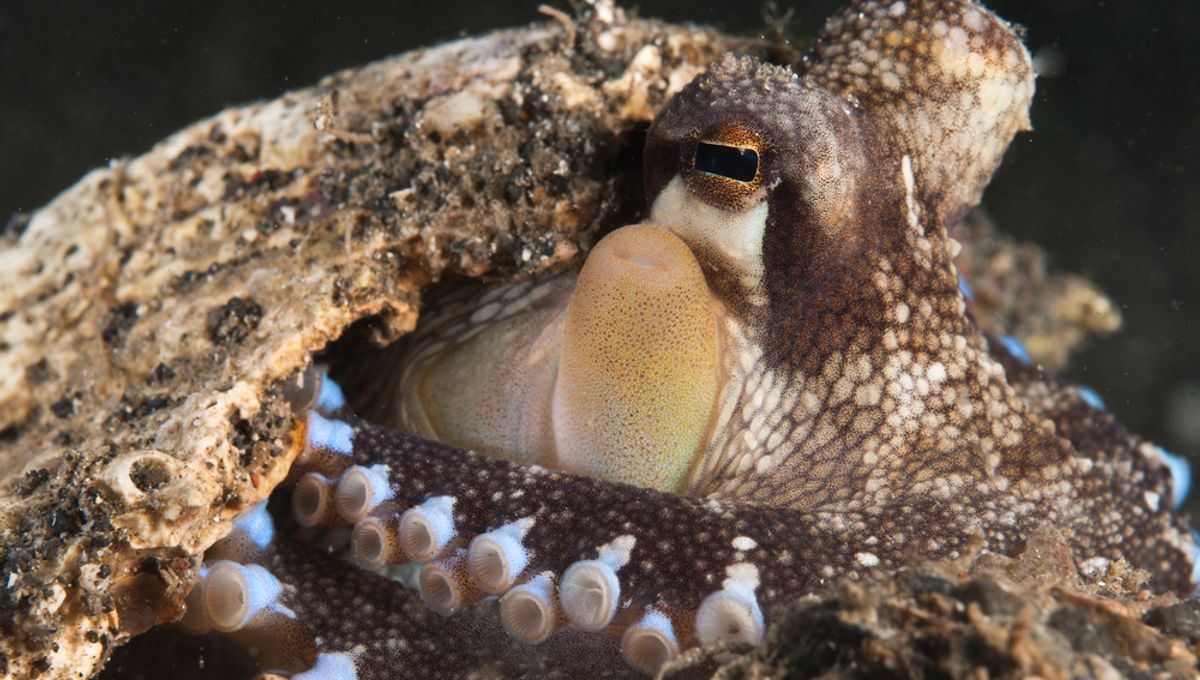
Deep in the genome of Antarctic octopuses, marine biologists have found something odd. Although the work is still undergoing peer review, the most likely explanation is an event over 100,000 years ago with very serious implications for the Earth’s future in a warmer climate.
During the 2010 football World Cup, an octopus named Paul achieved global celebrity for correctly “predicting” the winner of 12 out of 14 matches, the final included. Paul’s fame (and subsequent death) cleared the way for numerous other animal prognosticators. Most people, of course, realized that this was merely a matter of luck.
However, a team of researchers thinks our tentacled friends may in fact be able to predict a much more important part of our future, or at least help us to do so. The researchers released a preprint for other scientists to assess while it undergoes formal peer review – because if they are right, there’s not a moment to lose.
They studied the genetics of populations of Turquet’s octopus (Pareledone turqueti), particularly those living in the Amundsen and Ross Seas. By direct line, there are only 500 kilometers (300 miles) between them – but that distance is covered by snowbound land humans can barely cross, certainly untraversable to cephalopods.
The two populations have distinct genomes. This shows there has been no recent interbreeding, indicating the octopuses are not migrating around the hump of East Antarctica or through the straits of Magellan both in the current climate and under Ice Age conditions.
What is alarming, however, is that there were signs that the two seas’ octopuses did interbreed during the last interglacial period, 129–116,000 years ago, and scientists don’t think they made it around via either route.
Instead, it has been proposed that there was a channel between the two seas that was ice-free at least some of the time, allowing for some canoodling between members of each group. Lead researcher Dr Sally Lau of James Cook University told IFLScience this isn’t just speculation.
“We know of a channel that, if you take all the ice out of West Antarctica, links the Weddell Sea to Ross Sea,” Lau said. “We call it the seaway.” Others call it the octopus sex tunnel.
Theoretically, it is possible that star-crossed octopus lovers found their way around Antarctica, rather than using the seaway to cross it. However, Lau told IFLScience that “We deliberately chose a species that occurs all around Antarctica so we could compare genetic signals across these locations. Our method shows the complete collapse of the West Antarctic ice sheet is statistically the most likely scenario.”
The work is important because it indicates the West Antarctic Ice sheet is much less stable than has been hoped, and temperatures in the last interglacial were sufficient to melt a great deal of it. If this can happen once, it can happen again, particularly since global temperatures are set to exceed those in the last interglacial very soon if emissions of greenhouse gases are not controlled urgently.
“If we know West Antarctica collapsed last time, we can use that to determine its tipping point for collapse under the current circumstances,” Lau added. Such a collapse would raise sea levels several meters, even without contributions from other sources.
Lau told IFLScience that feedback so far has been very positive, but the work has yet to be accepted into a scientific journal. The seas in question are quite biodiverse, surprising as it may seem to those more used to temperate climates. Other species may be able to be studied in the same way to test the conclusions, but Lau told IFLScience that a combination of habitats around Antarctica’s perimeter, suitable genetic patterns, and sufficient samples are needed. Not many species fit all three, although the last at least is fixable.
Coincidentally, the work’s release coincides with a similar study on the genetics of crocodiles on either side of the Panama Isthmus, showing low sea levels during ice ages created a barrier that can similarly be read in the crocodile genome.
The Preprint is available at bioRxiv.org
[H/T The Guardian]
Source Link: If You Want To Know Sea Level’s Future, Ask An Octopus